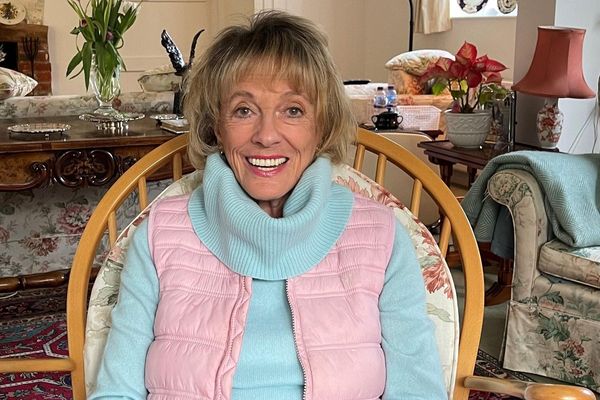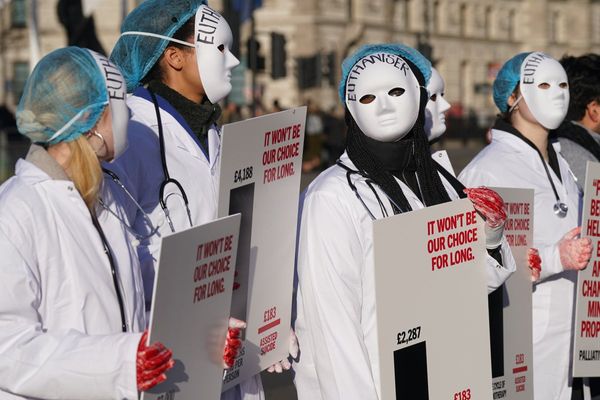Concerns have been raised about plans to “decommission” Wearside’s Nightingale Hospital as part of wider changes to the region’s Covid-19 vaccination programme – though health chiefs say it is no longer needed.
The North East’s Nightingale Hospital is based in a city council-owned unit at the International Advanced Manufacturing Park near Nissan, Washington.
The facility had been built as a research centre for the automotive industry but was taken over by the NHS at the start of the Covid-19 pandemic as a temporary hospital and then a vaccination centre.
Go here for more Sunderland news and updates from Sunderland Live
With demand for industrial space growing, the building is set to be vacated by April 2022, with the NHS continuing its vaccination programme on a local level on Wearside.
However the move has prompted concerns from city councillors about the potential impacts on Sunderland residents, and why other local mass vaccination sites in Newcastle, Darlington and Middlesbrough will continue.
“I really hope we haven’t been kept in the dark by any of the national authorities,” said councillor Michael Butler, vice-chair of Sunderland City Council’s Health and Wellbeing Scrutiny Committee.
“I’m sure the other areas have primary care networks working really hard and chemists and pharmacies doing the vaccinations.
“It’s quite worrying certainly as an individual representing the residents of Sunderland that the city will no longer have a mass vaccination centre and hopefully it doesn’t undo all the great work that everyone has done.”
Cllr Butler was speaking at Wednesday’s (March 9) meeting of the scrutiny panel, which was held at City Hall.
Councillor Mel Speding also noted the large demographic served by South Tyneside and Sunderland NHS Foundation Trust and existing health inequalities in both areas.
Cllr Speding told the meeting: “From my point of view, I’m concerned about the population of the city of Sunderland and also because it’s a South Tyneside and Sunderland NHS authority now, I’m concerned for South Tyneside as well.”
Councillors heard that the decision to wind down mass vaccination sites in both Durham and Sunderland was due to both sites coming towards the end of their fixed agreements, as well as the number of people using the sites.
Dr Fadi Khalil, local GP and clinical vice-chair of NHS Sunderland Clinical Commissioning Group (CCG), moved to reassure councillors that the city would continue to have a “strong” local vaccination delivery.
Dr Khalil told the meeting: “I think the decision to decommission the Nightingale is a regional one so it’s not up to the CCG.
“However having said that, I think the mass vaccination sites are by definition mass vaccination and the spring programme is going to have much less numbers, so the over 75s only.
“I would like to focus the attention on the health inequalities to move the discussion about how can we address Millfield and Hendon [low uptake wards].
“The mass vaccination site was never going to address health inequalities because again [attendees] are the ones who are able, they drive there, they’re capable.
“We have got very strong primary care network delivery on those wards, it’s how do we tackle and how do we change the narrative to address the hesitancy, the mass site would not have helped that.
“So I think it’s a bit of a red herring, there isn’t anything to penalise Sunderland, we have got enough in the system to vaccinate the patients that we need to vaccinate.”
Dr Khalil added: “I think the concern is if we get a surge of something can we set things up?
“I think we can cross that bridge when we get there and if we need to do it and need to do something quickly then we can.
“But at this moment in time having a mass vaccination site I would probably argue is a waste of resource.
“If you have funding to use on the NHS for something having a big shiny building that is empty that does a handful of vaccinations a day is probably a waste of resource.
“So the question is how can we invest time, effort and energy in addressing our local wards and I think that needs collective effort because that’s not easy.”
The building previously used by the Nightingale Hospital was recently put on the market and is expected to be ready for a new occupier by summer 2022.
Councillors heard that work was also taking place to retain the expertise of Nightingale staff and to potentially redeploy them into local vaccination sites.
A spokesperson for the Covid-19 Vaccination Programme for the North East and North Cumbria added: “There is no doubt that the Covid-19 vaccination programme has been the biggest and most successful vaccination rollout in the history of the NHS.
“There are many people and organisations who answered the call to help protect our communities.
“From across the NHS, from primary care, community pharmacy, hospitals, ambulance service, school vaccination services, local authority public health teams, community and voluntary sector and countless others have pulled together to vaccinate the vast majority of the population in response to the pandemic.
“Now the main threat from Covid-19 is passing, Covid-19 vaccination will move to more business as usual, in-line with other vaccination programmes, like flu.
“Working closely with our health and care partners, it’s clear there is sufficient capacity within primary care and community pharmacy to vaccinate the eligible population for both annual flu and Covid-19 in the future.
“As a result there won’t be a requirement to run large capacity vaccination centres at the NHS Nightingale North East and the Durham Arnison Centre.
“As the public would expect us to, we have contingency plans which mean we can step up significant capacity to vaccinate the full population if it is required and would include more roving and pop-up services which would be more accessible for local communities.
“These plans build on the enormous experience, good will and expertise vaccination services have gained over the last 16 months.”







